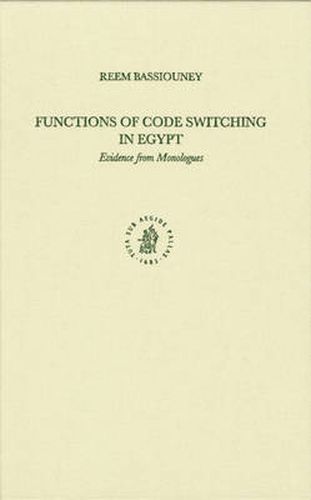Readings Newsletter
Become a Readings Member to make your shopping experience even easier.
Sign in or sign up for free!
You’re not far away from qualifying for FREE standard shipping within Australia
You’ve qualified for FREE standard shipping within Australia
The cart is loading…






This book reassesses theoretical approaches to diglossia and code-switching in the light of empirical data from Egypt. The work is based on a corpus of monologues that includes political speeches, mosque sermons and university lectures. Part one is a detailed analysis of the systems of negation, deixis, and mood marking in Modern Standard Arabic and Egyptian Colloquial Arabic, with an emphasis on the occurrence and frequency of composite structures in empirical data.
This analysis provides the basis for an extensive reassessment of theoretical approaches to code-switching in part two; this reappraisal in turn leads to a thorough analysis of the function of code switching in the Egyptian speech community, and of the factors which influence code choice, such as role of the speaker, audience, and subject matter.
$9.00 standard shipping within Australia
FREE standard shipping within Australia for orders over $100.00
Express & International shipping calculated at checkout
This book reassesses theoretical approaches to diglossia and code-switching in the light of empirical data from Egypt. The work is based on a corpus of monologues that includes political speeches, mosque sermons and university lectures. Part one is a detailed analysis of the systems of negation, deixis, and mood marking in Modern Standard Arabic and Egyptian Colloquial Arabic, with an emphasis on the occurrence and frequency of composite structures in empirical data.
This analysis provides the basis for an extensive reassessment of theoretical approaches to code-switching in part two; this reappraisal in turn leads to a thorough analysis of the function of code switching in the Egyptian speech community, and of the factors which influence code choice, such as role of the speaker, audience, and subject matter.